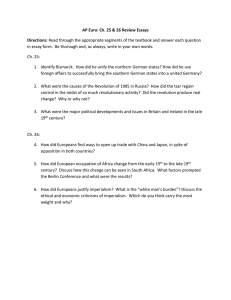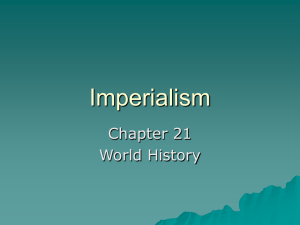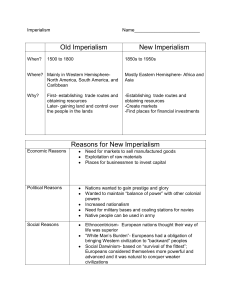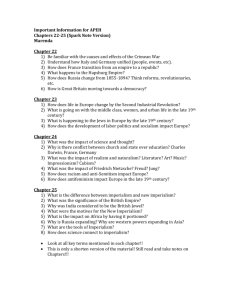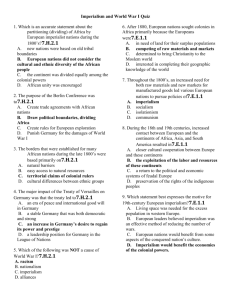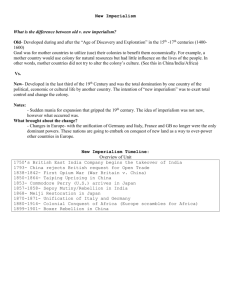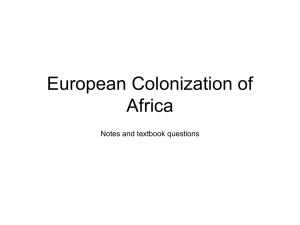European Imperialism Study Guide 1. The policy in which a state
advertisement
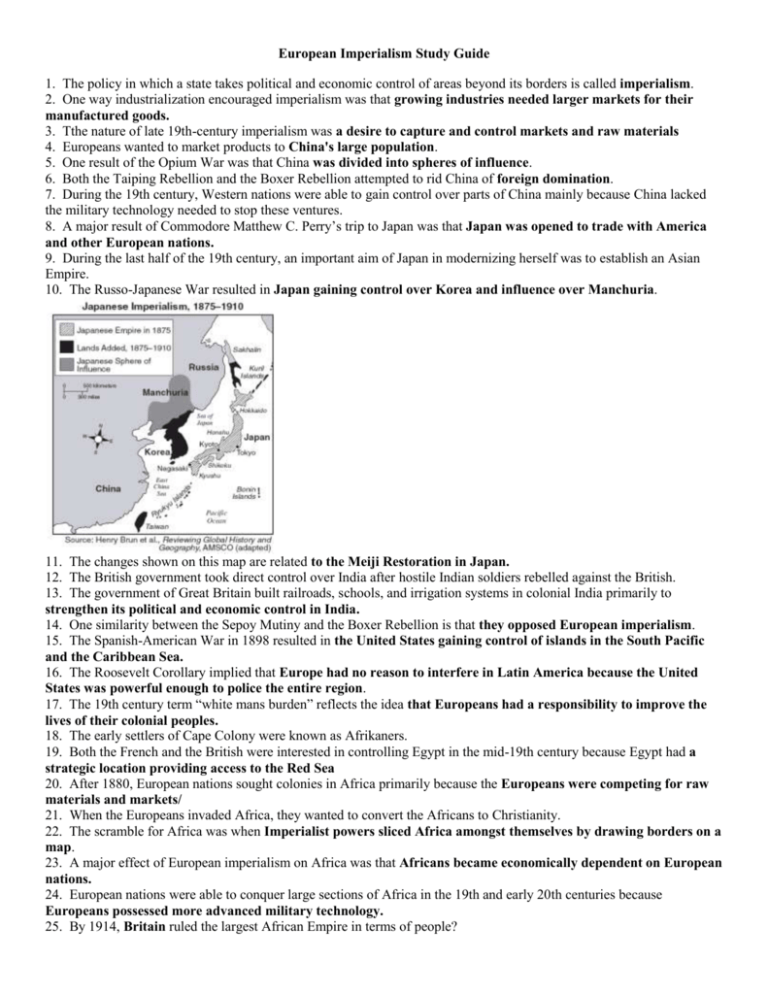
European Imperialism Study Guide 1. The policy in which a state takes political and economic control of areas beyond its borders is called imperialism. 2. One way industrialization encouraged imperialism was that growing industries needed larger markets for their manufactured goods. 3. Tthe nature of late 19th-century imperialism was a desire to capture and control markets and raw materials 4. Europeans wanted to market products to China's large population. 5. One result of the Opium War was that China was divided into spheres of influence. 6. Both the Taiping Rebellion and the Boxer Rebellion attempted to rid China of foreign domination. 7. During the 19th century, Western nations were able to gain control over parts of China mainly because China lacked the military technology needed to stop these ventures. 8. A major result of Commodore Matthew C. Perry’s trip to Japan was that Japan was opened to trade with America and other European nations. 9. During the last half of the 19th century, an important aim of Japan in modernizing herself was to establish an Asian Empire. 10. The Russo-Japanese War resulted in Japan gaining control over Korea and influence over Manchuria. 11. The changes shown on this map are related to the Meiji Restoration in Japan. 12. The British government took direct control over India after hostile Indian soldiers rebelled against the British. 13. The government of Great Britain built railroads, schools, and irrigation systems in colonial India primarily to strengthen its political and economic control in India. 14. One similarity between the Sepoy Mutiny and the Boxer Rebellion is that they opposed European imperialism. 15. The Spanish-American War in 1898 resulted in the United States gaining control of islands in the South Pacific and the Caribbean Sea. 16. The Roosevelt Corollary implied that Europe had no reason to interfere in Latin America because the United States was powerful enough to police the entire region. 17. The 19th century term “white mans burden” reflects the idea that Europeans had a responsibility to improve the lives of their colonial peoples. 18. The early settlers of Cape Colony were known as Afrikaners. 19. Both the French and the British were interested in controlling Egypt in the mid-19th century because Egypt had a strategic location providing access to the Red Sea 20. After 1880, European nations sought colonies in Africa primarily because the Europeans were competing for raw materials and markets/ 21. When the Europeans invaded Africa, they wanted to convert the Africans to Christianity. 22. The scramble for Africa was when Imperialist powers sliced Africa amongst themselves by drawing borders on a map. 23. A major effect of European imperialism on Africa was that Africans became economically dependent on European nations. 24. European nations were able to conquer large sections of Africa in the 19th and early 20th centuries because Europeans possessed more advanced military technology. 25. By 1914, Britain ruled the largest African Empire in terms of people?
